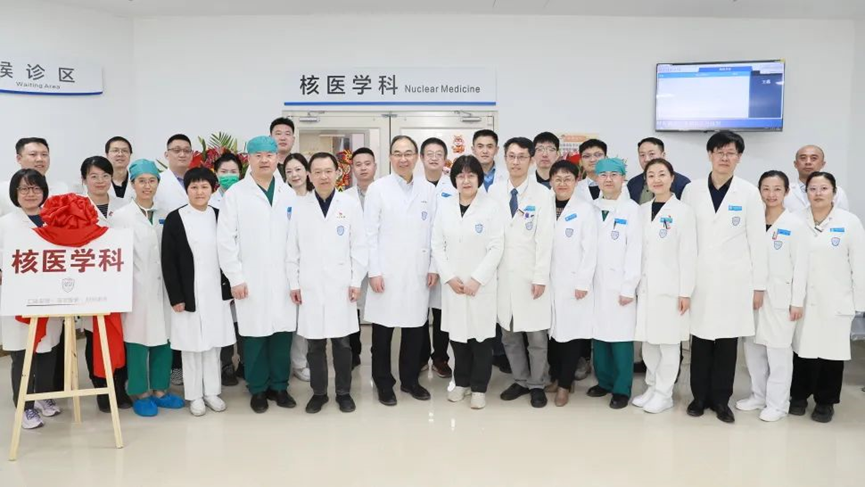Nuclear Medicine | PET/CT Advances Precision Diagnosis and Treatment
“生命雷达”PET/CT落户通州,助力精准诊疗再升级
2024-03-28
On March 19, the Nuclear Medicine
Department of Peking University People’s Hospital (PKUPH) at the Tongzhou
campus hosted a launch ceremony. President Wang Jun, Vice President Wang
Tianbing, Director Wang Qian of the Nuclear Medicine Department, and
representatives from relevant departments were present, marking this
significant occasion together. During this momentous occasion, the Positron
Emission Tomography and Computed Tomography (PET/CT) scan, known as the
"cancer radar", was unveiled and officially putoperation. This
cutting-edge equipment, considered the most advanced in molecular imaging for
nuclear medicine, can accurately detect cancers throughout the body in a single
scan.

President Wang Jun expressed optimism about
the potential of the PET/CT scan to enhance precision diagnosis and treatment,
thereby improving patient care. He stated, "By utilizing PET/CT scans, we
aim to enhance our capabilities in precision diagnosis and treatment, ensuring
better healthcare for our patients."
CT imaging acts as a 'searchlight,' and PET
imaging functions as a 'GPS locator’, as described by Director Wang Qian from
the Nuclear Medicine Department. This powerful combination enables precise
identification and evaluation of tumor lesions, enabling doctors to swiftly
initiate targeted treatments and gain an advantage in battling illnesses.
Moreover, PET/CT plays a pivotal role in
diagnosing and treating infectious and inflammatory diseases, neurological
disorders, and cardiovascular conditions. The Nuclear Medicine Department of
PKUPH led the way in using PET/CT for infection and inflammation diagnosis,
backed by research confirming its unparalleled advantage in diagnosing fevers
with unknown causes.
News Source: the Nuclear Medicine Department
Rewritten by Gao Yanbing
Reviewed by Li Li

